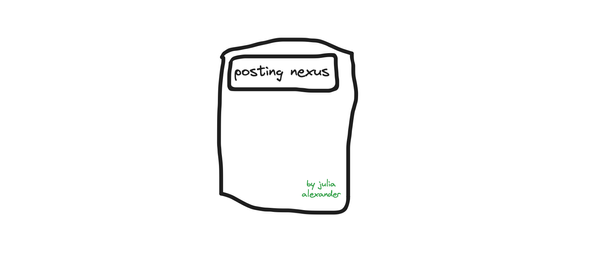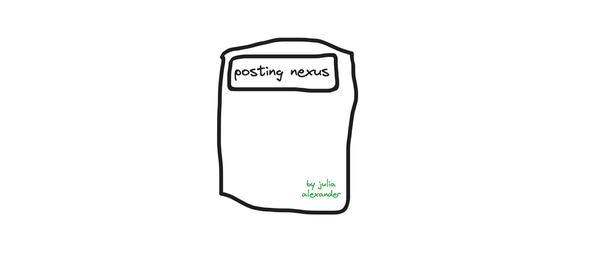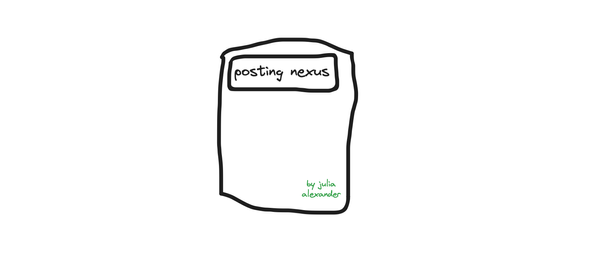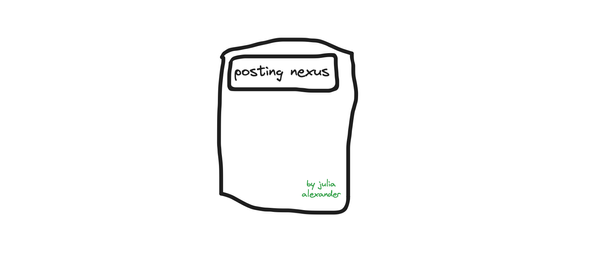The Dying Art of Open Sourcing Will Ruin the Internet
Open Source allowed the internet to become the transformational space it is today. Is it possible anymore when the spirit of collaboration is killed on sight by the pressure of shareholder returns?
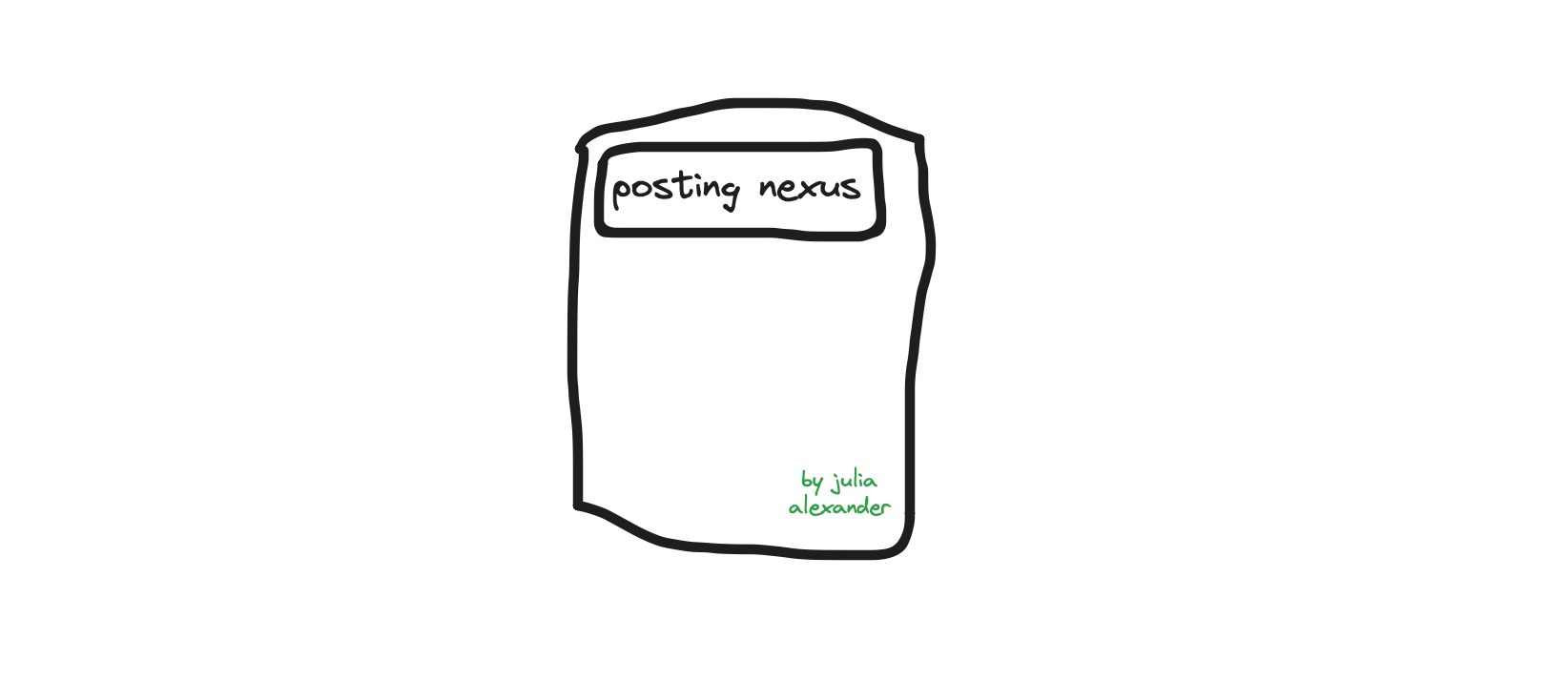
A widely accepted truth is that if you build something, they will come. Less acknowledged is that if you build something, they will come and build something better on it. Considering there are only a few places on earth that we have not totally stripped, mined, and proclaimed as ours (such as the Mariana’s Trench, although James Cameron certainly tried), building upon something means technology. The iPhone 3G led to the Galaxy 9. The vinyl audio cabinet led to the Sonos soundbar. DOS led to artificial intelligence. Or something.
Building for the future is a paradoxical goal. Collaboration is a must, but profitability guides all actions. Even people trekking out West in search of gold needed to pave the way together before slaughtering competition in the riverbeds of California. What happens when a group of entrepreneurs come to reap the rewards of what the earliest builders accomplished, creating their own empire off the backs of others? And what if those backs were readily offered for free? Is the new entrepreneur at fault for not giving back to the community that made their empire possible, or is it the foolishness of the earnest earliest settlers giving away their harvest without asking for anything in return?
This is the debate at the center of a perplexing, but fascinating fight between WordPress’s parent company Automattic and WP Engine, but it’s also a necessary thought experiment for new giant bricklayers — most notably, OpenAI. WordPress, owner of the website content management system (CMS) software that powers roughly 40% of the internet, is in a slightly juvenile fight with WP Engine, a company that builds its own CMS offering using WordPress’ open-source capabilities that it sells to its own customers. Around mid-September, Automattic C.E.O. Matt Mullenweg called WP Engine “a cancer” in a blog post, specifically calling out WP Engine for not allowing customers to track history on their posts in an attempt, Mullenweg claimed, to make WP Engine more money. The WP Engine team responded with a cease-and-desist letter to WordPress, which resulted in WordPres filing its own cease-and-desist letter. As the public fighting continued, WordPress blocked WP Engine’s access to certain features, affecting a horde of website owners who couldn’t update their plugins or themes.
Both companies have published testimonies about why they’re in the right. Automattic claims that WP Engine falsely advertises itself as part of WordPress by using “WP” in its name while offering a worse experience (such as not allowing site owners to access archives). The company also claims that WP Engine only contributes about 40 hours of work per week to WordPress’ open-source program, which allows companies like WP Engine to build off WordPress’ code, compared to Automattic’s more than 3,000. WP Engine argues, however, that it has the right to use “WP” since it isn’t trademarked, and has pivoted the fight into one about the control Automattic and WordPress have over the entire internet. As one S.E.O. influencer noted on X, “WordPress is not open source. It is a bastardized simulacra version of open source controlled by a wealthy maniacal dictator that is slowly sinking into the dark depths of madness.”
Building for the future is a paradoxical goal. Collaboration is a must, but profitability guides all actions.
When you remove all the back-and-forth bickering, at the heart of the debacle is a question about what open source really means and, at a more philosophical level, what incentives exist for open sourcing today compared to the incentives that propelled the original open sourcing of the internet more than three decades ago?
As daunting as it seems, try to think of the internet in square miles. This not only makes it easier to visualize, but the incentive factors are much more obvious. Real estate moguls and conquerors have the same goals as the Automattic’s of the world. Control the most land, invite people to prosper off said land, and then find a way for that community to become a source of indispensable, continuous wealth. When the Gold Rush kicked off, there was two intertwined ideas: access to gold would make the miner and his family immediately wealthier, and the bounty of that wealth could be used to build up districts in the West that would allow them to control more land, access resources on that land, and imbue power from the newfound stature.
Those forty-niners also illustrate a relatively unique connection to today’s digital oil barons. Different people knew how to use nuggets of gold in different ways. Newcomers may stumble upon a nugget and sell it to the best buyer they can find in town. Their guy standing next to him in the river, however, may know how to take a gold nugget home, melt it down, and turn it into a line of jewelry that is sold for 5x as much while creating a brand for the rancher, bringing people back to his doorstep again and again. If you’re the newcomer, you have two options in front of you: hope that you continue to find bigger and bigger nuggets to sell for higher and higher prices or provide some of your gold to your newfound friend in exchange for learning how to create your own jewelry. This may make you competitors, but ultimately, it’ll instill new skills and create potential longevity for success that wouldn’t have existed otherwise in the newcomer and give more gold to the jeweler. Collaboration before profit equates to long term profit even if that collaboration severs.
So how does this connect to WordPress and, down the line, AI development? Can open sourcing continue if the jeweler in this scenario (WordPress) is terrified of the newcomer (developers and builders) becoming even more in-demand that the original jeweler is out of a clientele base? Does the disincentivization of competition hinder to the point of self-immolation the incentivization required to actually build the world of tomorrow? What is the purpose of open source if not to openly collaborate on a significant problem that can’t be figured out by one company alone?
A significant driver of these problems, as demonstrated by the philosophical move away from open sourcing to making everything extremely private and confidential, is defining the end state as a growth state. Going back to our gold hunters, those who were able to collaborate and learn a new skill are more likely to see longevity in success once the resources of the land are dried up. Trying to create an end state that is defined by growth doesn’t work when the resources being pulled on are finite. Even things we thought were infinite — the level of demand for user generated content, entertainment, and interactive experiences — are finite. They become smaller and smaller percentages of our day as we split time across multiple devices to satiate multiple needs. But what works for the consumer doesn’t work for the company trying to take those finite moments and turn them into empires.
Collaboration before profit equates to long term profit even if that collaboration severs.
WordPress’ team understands this. If WordPress can conquer the internet by becoming the go-to infrastructure for everyone else who wants to build on it, then it doesn’t have to fight to maintain a smaller and smaller percentage of attention for its own businesses. It needs to become an undeniable tool, like Linux. By operating under a dual-licensing structure, Linux receives IBM contributions to the open-sourced ecosystem, but then builds additional products using the Linux code for companies and other clients. Linux is available to everyone, but certain solutions aren’t. This is what WordPress does with its additional features that it sells and, arguably, is precisely how WP Engine operates, too.
The fight with WP Engine suggests, however, that open source is only good while the person or company wielding power is in front. Once that open sourcing capability creates a sizable opponent, which always seemed like the inevitability when you consider what open sourcing creates, then it dissolves into the type of grandstanding we’re seeing play out here.
It’s impossible to watch this fight play out before us, across multiple different platforms, and not think about how companies partaking in the AI Race of the early 2020s are thinking about their own positioning and their own needs. WordPress gave away fully developed CMS portals to encourage more people to build websites that attract visitors who in turn attract advertisers. Websites were (perhaps still are) the bleeding heart of the internet, and the more time that an average person spent on the internet the more opportunity there was for advertisers and the more WordPress succeeded. The social internet saw this happen with Instagram and YouTube, while the social video era saw this explode with TikTok. As the saying goes, if you’re not paying for the product, you are the product.
The next age of the internet, whether that’s spatial or something we haven’t created yet, may incorporate newly discovered and built AI capabilities. But in order for building on that technology to happen at the speed of consumption companies like Meta and OpenAI would like, open sourcing is required to allow people to build into the ecosystem. In a message to the World Economic Forum, Grammarly C.E.O. Rahul Roy-Chowdhurthy acknowledged the incentives for tech companies to disincentivize open sourcing, but argued against this mentality. “I fully appreciate the need for closed-source models,” he wrote. “My fear is a future in which all AI development is closed-source, diminishing the innovation, responsibility models and transparency that open-source development brings to the industry.”
Diminishing innovation, responsibility and transparency is precisely what we all don’t want to happen in steps forward with artificial intelligence. To be clear: incentive, and to a much more pertinent fact as it pertains to this essay, disincentivization is removed from ethics, and open sourcing is an ethical question before it’s a business one. The problem is that because we exist in a growth state as an end state, taking a second to pause and to ask for help or provide help, not with the intention of short term profit but with the mindset of true innovation, is no longer possible. Literally the day I was set to publish this, OpenAI closed its $6 billion round, leading to a valuation of nearly $160 billion — the wealthiest non-profit company in the world — and news reports circulated that OpenAI executives asked investors not to invest in other AI companies, including Anthropic.
Because we exist in a growth state as an end state, taking a second to pause and to ask for help or provide help, not with the intention of short term profit but with the mindset of true innovation, is no longer possible.
There are a couple of immediate problems here, right? There are glaring antitrust issues. One venture capitalist told the Financial Times that when a company like OpenAI “holds all the cards, they can force people to do extreme things.” Just to spell that out as clearly as possible: if a company holds all the cards, it can force people to do so is the type of sentence that underlines the need for antitrust laws in the first place. There’s also the confidence question. If OpenAI, which at this point is to artificial intelligence and large language models what Google is to search, is so confident in its product, why not let investors give money to other AI companies? Don’t all future steps forward in an area that’s still on ground zero benefit the entire industry?
But OpenAI, like WordPress, can’t simply own the space that everyone builds on while encouraging other companies to use their own learnings and build their own companies. At some point they’ll become disincentivized to help build competitors. Back when WordPress started in 2003, when the internet was young but the dot com crash still seared into people’s minds, there was an idea that building together for a future that was still unclear would work better than trying to take the whole unexplored ocean on their own. Profits still drove decisions, but that newfound fear that sprung from reality breaking through fantasy led to a spirit of collaboration amidst uncertainty instead of profits through pulverization.
Some of this may have occurred in the post-financial crisis if three things didn’t happen simultaneously — the Fed instituted a near zero interest rate to help businesses, Facebook launched a billion-dollar IPO, and the iPhone launched. It created a breeding ground for venture capitalism with a strong talent pool trying to figure out their next jobs post layoffs, and new technology to build on. It also, however, marked the beginning of total closed source mindsets, of an era with unheard profits, and the age of the tech genius. It wasn’t good enough to be compared to Steve Jobs anymore. Not when you could be a peer like Zuckerberg, Dorsey, or Kalinack. There’s nothing that tanks innovation more than guidance by a spreadsheet and the ego behind it.
Building for the future shouldn’t be a paradoxical idea, but it does require sacrificing ego when the moment calls for it. These two stories, not intertwined in any way but still so similar in genetic makeup, are about uncertainty over what comes next. Instead of banding together to try and figure out the problem together, they’re running by the ego playbook. I promise you, it does not end well. Just ask Caligula.

